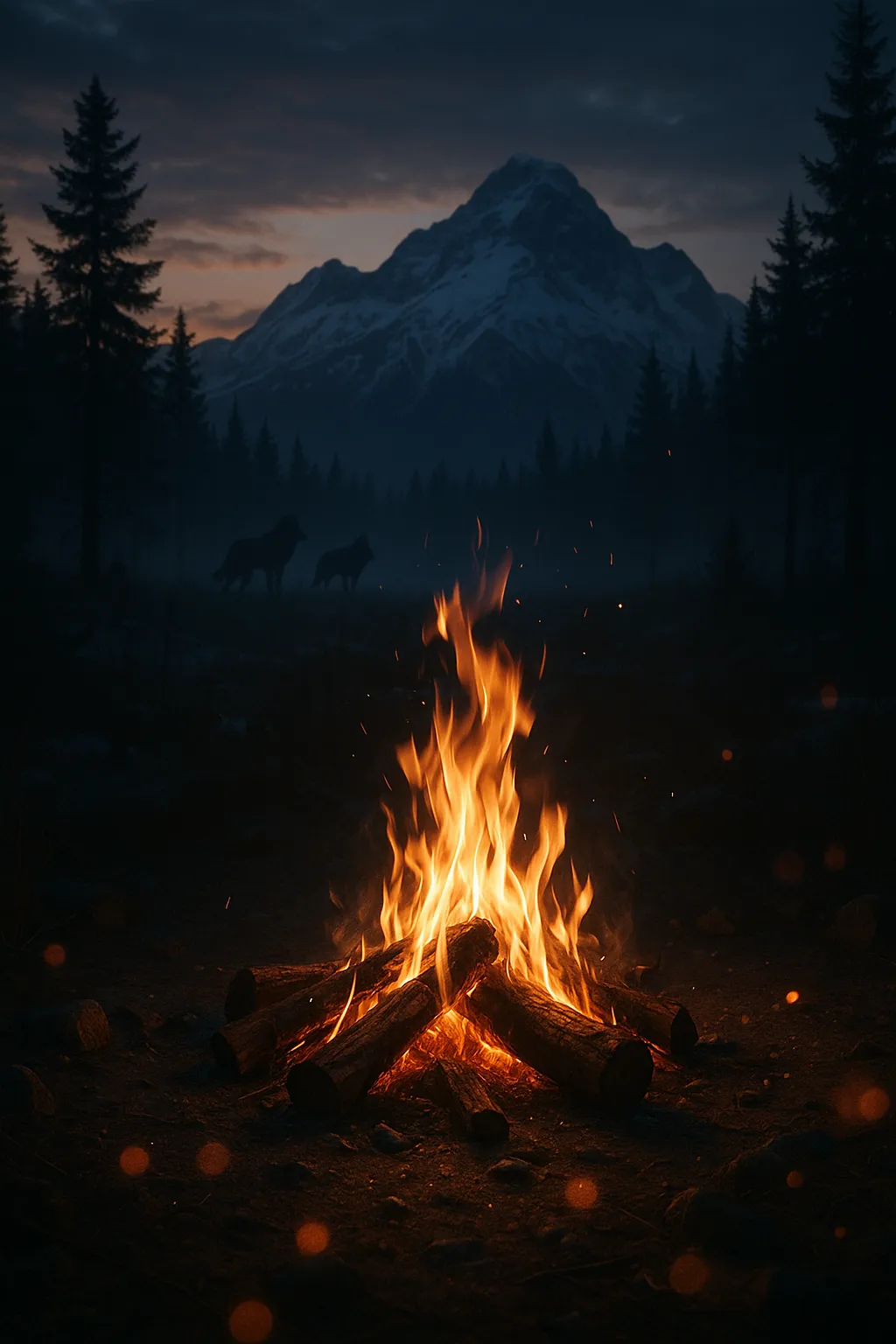
The Day the Ancients Spoke: Shadow and Prophecy Part 2
Previously in Part I: four families met the Ancients, sealed a sanctuary, and took vows that shaped their blood.
But no pact is without a shadow. Idrissi, ah, hear me closely, Idrissi broke faith when fear made a home in their throats. Some among them bartered whispers for safety, pointing a hungry man toward the place he should never find. The Ancients answered with a different kind of mercy: they bound those betrayers into fur forever and named them Waya Ani Gawohi, the cursed guardians, wolves who would keep watch at the threshold of the very womb they endangered. Punishment, yes, but duty too, until the snow forgets its own name.
The Lupai Koyah, children of the first teachings, stayed woven to that land, moon strong, temple steady, tending balance where spirit and dust meet. Their altars look like stone, but they breathe. Their songs look like silence, but they carry. When the full moon lifts, their voices reach into bone.
So it was that the pact held, ragged in places, mended in others. Those who left wore dawn in their eyes and winter in their ribs. Hunters searched the night by blood scent and found nothing but wind. The Mother’s Womb continued to move where the world could not follow, and the trails that remembered sorrow led the willing home.
Now, child of many names, you ask me why the ground still shivers when a Dumisani grieves, why an Abebe can stitch a dream back into a body, why an Adeyemi stands at a doorway and weather changes its mind. You ask me what becomes of a people who carry a bargain made with snow. I give you the answer that fits in a mouth: prophecy is a door and a mirror. We look through it and we see ourselves coming.
The elders kept a short verse for the night fires, a braid of warning and promise. Hear it and keep it:
When the hunter forgets his own shadow,
and the river remembers every name,
gold will open in the eyes of the storm,
and the bridge between breaths will speak.
Do not fear the snow that sleeps,
fear the hand that wakes it wrong.
Some say “the storm” means a boy who fights before he thinks, that “the bridge” means a girl who can walk the span between heartbeat and silence. Some say the hunter is an ancestor who returns, and some say he is the echo of a man who chased power so long he became its mouth. I will not tell you which reading is right; the fire tells different truths to different listeners. But I will tell you this: when gold returns to the eyes, the old protections stir, and those who hunt by scent feel, for the first time in centuries, the prickling of a quarry they thought buried with their sins.
If you walk the borderlands where the Wasteland chews at the horizon, you may hear the Lupai Koyah drums under the wind, and if you are very quiet, you may feel the Mother’s Womb pass beneath your feet like a whale under a boat, immense and kind and older than your questions. If you find the water that remembers, be ready to be measured. A door that opens for anyone protects no one.
So we keep the pact’s story alive: not to worship the bargain, but to understand its cost. We honor Dumisani for carrying memory that burns and heals; Abebe for stitching spirit to skin; Adeyemi for standing where the teeth are; and we honor Idrissi, too, not for betrayal, but for the long, lonely work of guarding what they once endangered. In this way, a wound becomes a watch. In this way, a curse can learn the shape of a prayer.
If you remember nothing else, take this back to your bed and let it sit on the sill while you sleep: the Ancients spoke once, and the world is still answering. When you hear the snow breathe, when you dream in the color of ripe corn, when the river calls you by a name you did not know you had, do not run. Step forward. Speak back. The pact is not a chain; it is a chorus. Add your note.
And keep the fire. We will need it when the ground begins to move again.
